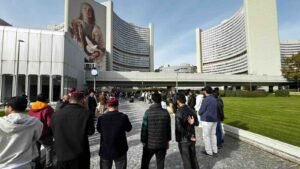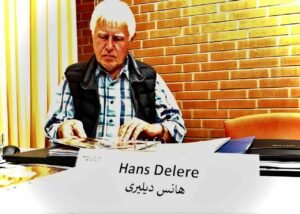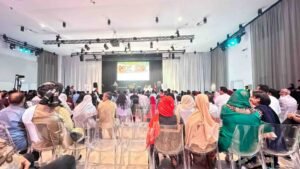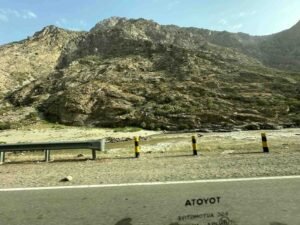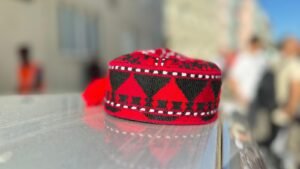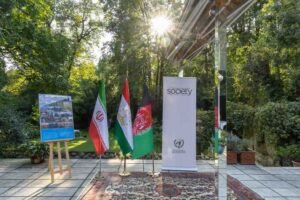Voices of Resilience: Afghan Women’s Empowerment and Challenges: Insights from the Civil Society Forum in Vienna
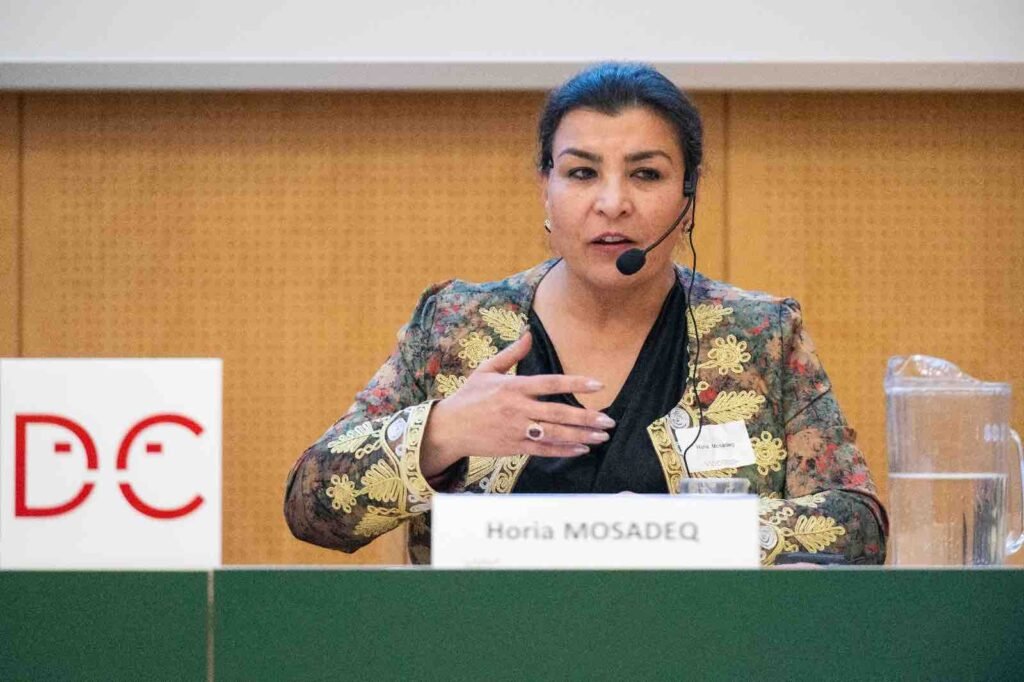
Afghan women's rights defender, Horia Mosadiq, and the director of Conflict Analysis Network discuss the plight of Afghan women during the Civil Society Forum in Vienna on December 1, 2023. Photo: @OXUS
VIDC
In early December 2023, the Vienna Institute for International Dialogue and Cooperation (VIDC) convened a gathering of Afghan civil society organizations (CSOs) and diaspora groups from nine European countries. The two-day forum comprised of critical discussions on reconciliation, women’s empowerment, youth and minority participation, and the proactive role that civil society in the diaspora can play in fostering a democratic and Taliban-free Afghanistan.
The inaugural day of the forum featured insightful presentations and discussions involving international researchers and members of the Afghan diaspora. Horia Mosadiq, the director of the Conflict Analysis Network (CAN) and a passionate advocate for human and women’s rights, shared her perspective in the forum. Brigitte Rath, a founding member of the Women International League for Peace and Freedom (WILPF) Austria, who represented WILPF on the panel alongside Mosadiq. The full report can be accessed on VID website.
Empowering and Amplifying Afghan Women’s Voices
During her presentation on the vital role of women in any upcoming peace negotiations, Mosadiq asserted that ‘as women, we bear the brunt of war, and any peace talks, negotiations or reconciliation processes must prioritize and center the interests of women’. Throughout her talk, she emphasized the need for global attention to the voices of Afghan people, particularly women.
Mosadiq addressed the complex dynamics of dealing with the Taliban by recounting personal experiences and highlighting contradictory narratives regarding the group’s treatment of women. She decried the lack of justice and accountability for the human rights violations committed by both the Taliban and international forces during two decades of US-led NATO military engagement in Afghanistan and expressed skepticism about the international community’s commitment to justice. Mosadiq also expressed her frustration with international institutions, especially the UN and the International Criminal Court (ICC). She called for the recognition of gender apartheid as a crime against humanity under international law and to label the Taliban as a gendered oppressor due to its systematic discrimination against women.
Mosadiq pleaded for the international community to listen to the voices of Afghan women and re-evaluate their standards and practices. She underscored the need for critical solutions that acknowledge, prepare, compensate for, and deliver justice to the people of Afghanistan. Despite her frustration and loss of faith in international institutions, she put forth an unwavering call for continued engagement to address the pressing issues facing Afghanistan and its people.
Peaceful Feminism
The founding member of the Women’s International League for Peace and Freedom (WILFP)-Austria, Brigitte Rath, speaking at the forum elaborated on the organization’s diverse activities, including meetings, lectures, demonstrations, peace conferences, and supporting and empowering female refugees. WILFP places a particular emphasis on women’s empowerment, evident in its Afghan women’s group.
WILFP has a rich history dating back to its founding in April 1915 during the First World War. More than 1100 women from 12 countries gathered in The Hague to discuss the root causes of conflict and an end to the war. WILFP’s Austrian chapter was established only in 2021.
With its core objectives centered on preventing and ending wars, disarmament, and fostering sustainable peace and freedom rooted in social, economic, and criminal justice, WILFP remains committed to these principles. The organization emphasizes the importance of involving women and girls, especially those vulnerable to discrimination, in nationwide institutions for empowerment and peace-building. WILFP Austria stands at the forefront of advocating for a more just and peaceful world, echoing the sentiments of its global counterparts.
In August 2023, WILFP addressed the Austrian government, urging the provision of asylum for Afghan women and girls facing persecution, according to Rath. She stated that WILFP called for the implementation of human rights for families through expedited family reunification procedures and highlighted the need to leverage the knowledge of the diaspora to aid peace initiatives in Afghanistan. Despite financial constraints, WILFP demonstrated the impact of grassroots efforts through a small project. Collecting €6,000, the organization provided groceries to 55 vulnerable women and their families in Afghanistan, showcasing the potential of acknowledging hidden structures within the Afghan diaspora, stated Rath.
“Peace is life,” Rath concluded her speech.
Note: The contents of the article are of sole responsibility of the author. Afghan Diaspora Network will not be responsible for any inaccurate or incorrect statement in the articles.

